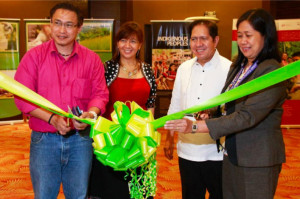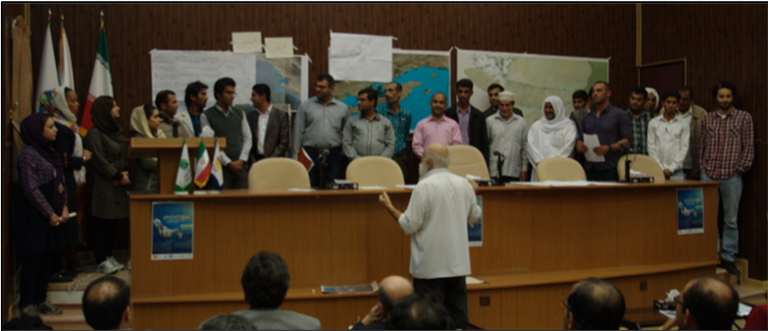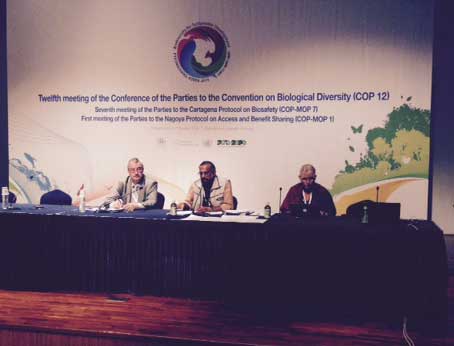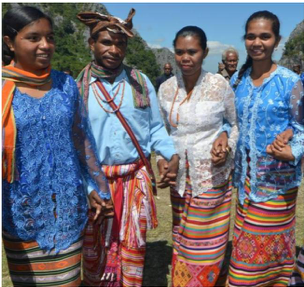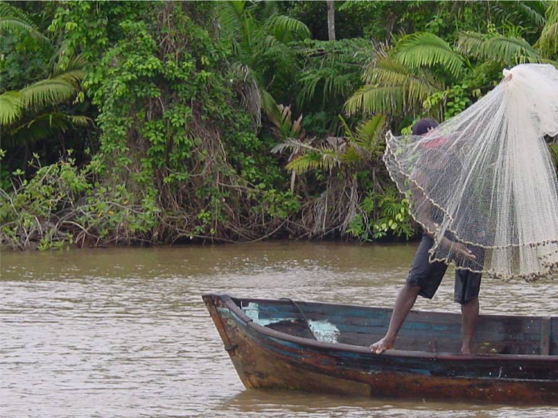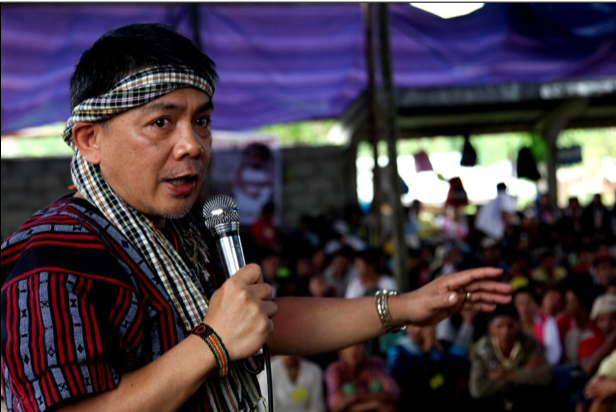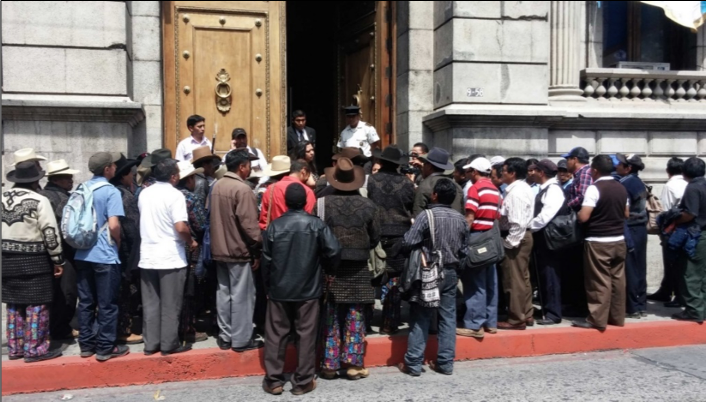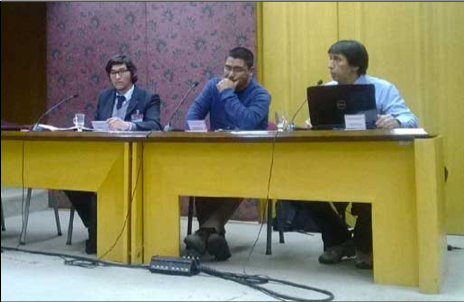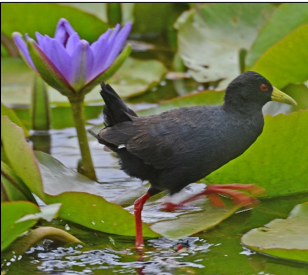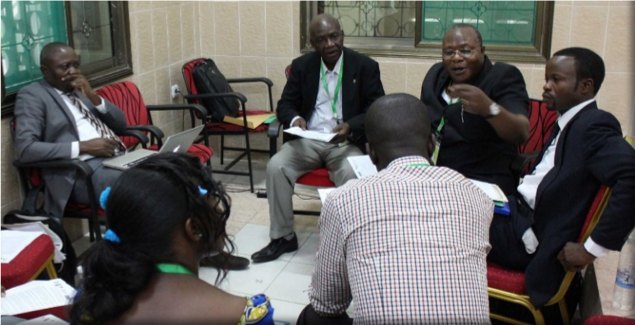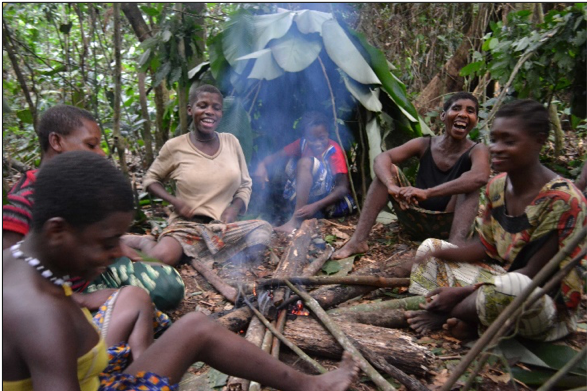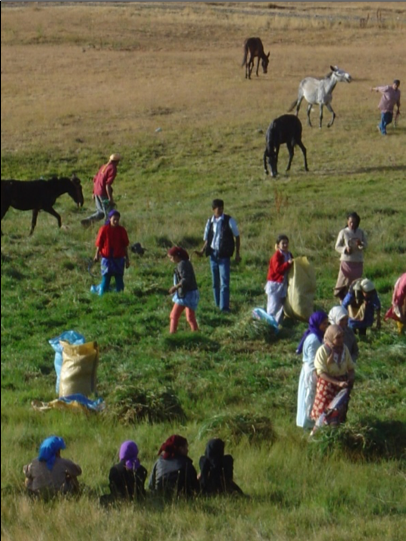The Second National Conference on Indigenous Peoples’ and Local Communities’ Conserved Areas and Territories (ICCA) 21-22 October 2014, Manila
The conference aimed at further advancing the recognition and role of Indigenous Peoples (IPs) in biodiversity conservation, strengthening of traditional governance systems, forging stronger… Read more “The Second National Conference on Indigenous Peoples’ and Local Communities’ Conserved Areas and Territories (ICCA) 21-22 October 2014, Manila” ▸
Regional workshops on “National governance and management arrangements of protected areas through participatory approaches in Iran”
By: Mina Esteghamat, Regional Coordinator for West and Central Asia (CENESTA) Under the government action for the implementation of national management plans of protected areas,… Read more “Regional workshops on “National governance and management arrangements of protected areas through participatory approaches in Iran”” ▸
Re-empowerment of indigenous peoples and local communities towards biodiversity conservation and achieving sustainable livelihoods in coastal and marine ICCAs in Iran
By: Centre for Sustainable Management and Environment (CENESTA), Member of the ICCA Consortium A multi-stakeholder workshop was organised by Cenesta on the role of ICCAs… Read more “Re-empowerment of indigenous peoples and local communities towards biodiversity conservation and achieving sustainable livelihoods in coastal and marine ICCAs in Iran” ▸
Consultation meeting of CCAs in Nagaland, India
By: FES Member of the ICCA Consortium A consultation meeting of Community Conserved Areas (CCAs) of Nagaland (India) was held September 23 at Zonal… Read more “Consultation meeting of CCAs in Nagaland, India” ▸
Sherpa Program Supports ICCAs in the Mt. Everest Region of Nepal
By: Stan Stevens, ICCA Consortium The Khumbu Sherpa Culture Conservation Society (KSCCS), headed by Tenzing Tashi Sherpa (coordinator of the ICCA Network Nepal), has been… Read more “Sherpa Program Supports ICCAs in the Mt. Everest Region of Nepal” ▸
The ICCA Consortium at the CBD COP 12
The ICCA Consortium has been represented by ten delegates (members of the steering committee, honorary members and representatives of members) at the Twelfth meeting… Read more “The ICCA Consortium at the CBD COP 12” ▸
German government, GEF, and UNDP partner to create largest global fund for ICCAs
At a ceremony during the High Level Segment (HLS) of the CBD COP12, the German government, the Global Environment Facility (GEF), and the United… Read more “German government, GEF, and UNDP partner to create largest global fund for ICCAs” ▸
Linking Local, National and International Advocacy Strategies and Initiatives
By: Holly Jonas, ICCA Consortium International Policy Assistant and Natural Justice (member) From 4-5 July 2014, a small group of staff and members of… Read more “Linking Local, National and International Advocacy Strategies and Initiatives” ▸
CDB Expert workshop to Provide Consolidated Practical Guidance and a Toolkit for Marine Spatial Planning
By: Vivienne Solis Rivera, Steering Committee Member The ICCA consortium was invited to participate in the CDB Expert workshop that discussed Marine Spatial Planning… Read more “CDB Expert workshop to Provide Consolidated Practical Guidance and a Toolkit for Marine Spatial Planning” ▸
The ICCA Consortium at the WCIP
On the 22-23 September 2014, was held the World Conference on Indigenous Peoples in the UN headquarters in New-York. Giovanni Reyes, member of the… Read more “The ICCA Consortium at the WCIP” ▸
El poder de organización y el movimiento con base territorial es el camino para transformar las leyes, instituciones y políticas a favor de la vida en todas sus dimensiones
Por: Felipe Gómez Gómez, Maya Kiche; Miembro del Comité Directivo Internacional ICCA CONSORTIUM, Oxlajuj Ajpop, Centro de Investigación de la Ciencia Maya El pasado… Read more “El poder de organización y el movimiento con base territorial es el camino para transformar las leyes, instituciones y políticas a favor de la vida en todas sus dimensiones” ▸
Dirigentes Mapuche y Consorcio TICCA solicitan se incorpore la gobernanza indígena y someta a consulta proyecto de ley que crea el Servicio de Biodiversidad y Áreas Protegidas
Por: Lorena Arce, Coordinadora Cono Sur, Consorcio TICCA Representantes de organizaciones mapuche y de derechos humanos –integrantes del Consorcio TICCA en Chile– acudieron el… Read more “Dirigentes Mapuche y Consorcio TICCA solicitan se incorpore la gobernanza indígena y someta a consulta proyecto de ley que crea el Servicio de Biodiversidad y Áreas Protegidas” ▸
ICCAs in Kenya – a tough balancing act
By: Laura Mukhwana, KENWEB, ICCA Consortium’s Member. The prospects for the establishment of ICCAs in Kenya are not rosy. Indigenous communities, with the exception… Read more “ICCAs in Kenya – a tough balancing act” ▸
Vers la reconnaissance légale des APAC en République Démocratique du Congo
Le REPALEF, plateforme des réseaux et organisations des peuples autochtones qui œuvre pour une gestion durable des écosystèmes en République Démocratique du Congo, a… Read more “Vers la reconnaissance légale des APAC en République Démocratique du Congo” ▸
Connecting Indigenous Youth and Elders
The traditional inhabitants of many ICCAs possess an intimate, synergic relationship with the territories they occupy and share a history with. Over time, this… Read more “Connecting Indigenous Youth and Elders” ▸
Les Agdals du haut Atlas de Marrakech (Maroc)
Par Pablo Domínguez, Enseignant-Chercheur du Département d’Anthropologie culturelle de l’Universitat de Barcelona Une grande partie des populations rurales et/ou traditionnelles qui vivent en relation… Read more “Les Agdals du haut Atlas de Marrakech (Maroc)” ▸
First Nations in British Columbia are taking leadership on asserting Indigenous Rights and Title in their territories
By Kim Sander Wright; ICCA Consortium’s Global Coordinator for Coastal, Marine and Island Environments First Nations in Canada have recently been celebrating the outcome… Read more “First Nations in British Columbia are taking leadership on asserting Indigenous Rights and Title in their territories” ▸
Tribal Parks in Canada: Modern expressions of Indigenous Governance systems
By: Eli Enns, Regional Coordinator, North America A new model of Tribal Parks is emerging in Canada under the leadership of the Tla-o-qui-aht and Tsilhqot’in… Read more “Tribal Parks in Canada: Modern expressions of Indigenous Governance systems” ▸
Migratory birds connecting communities and their ICCAs in separate continents?
By: Wim Hiemstra Ria Oevering holds a young godwit chick, about 3 weeks old. The bird hatched in May 2014 on their dairy family farm, where the Oevering’s… Read more “Migratory birds connecting communities and their ICCAs in separate continents?” ▸
Preserving communities and environment through Transhumance
By: Concha Salguero & Transhumancia y Naturaleza/Meditarranean Consortium The Mediterranean Consortium for Nature & Culture has undertaken a project to assess and support transhumance and… Read more “Preserving communities and environment through Transhumance” ▸
